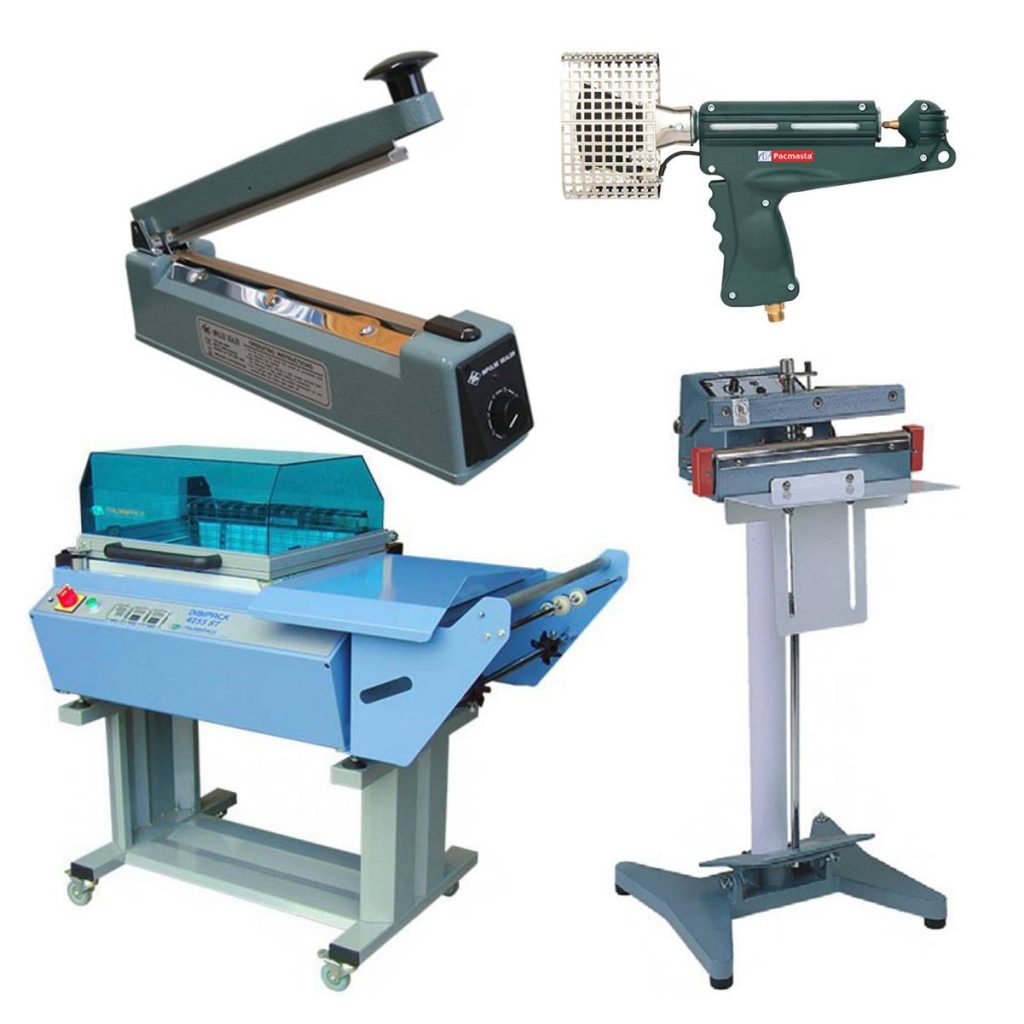Heat Sealers for the Food Industry
Consumption of takeaway food and premade meals has increased as our lives get busier. The convenience of takeaway and ready-made meals circumvents the labour of a home-cooked meal. COVID-19 has caused an upswing in the consumption of packaged meals and dine in food outlets have added takeaway menus to maintain business. This has caused an increased interest in heat-sealed food preservation.
Conscious consumers are demanding fresh food and are more aware of packaging issues and food miles. There has also been a consumer-driven rise in support for values-based artisan foods, small local producers and direct purchasing from markets. Preservation and presentation of foods direct to the consumer have led to innovations in heat-sealed food packaging, especially with artisan dairy products and free-range meats.
So, what is heat sealing?
When referring to heat sealing for the food industry we are talking about sealing in food-grade thermoplastic bags and trays. There are many types of sealing packs and some include cardboard and paper with an adhesive that won’t contaminate food. Heat sealers can also weld laminated layers of different materials if one layer is thermoplastic. Each mix of materials will require a specific set of heating and cooling times to get that perfect airtight seal.
How do heat sealers work?
Heat sealers work by welding thermoplastic layers together to form an airtight leak-proof sealed bag or food tray. This is to preserve the perishable food and prolong its shelf life. While sealing food can keep it fresher for longer, if it is perishable like dairy, and meat, it will still require refrigeration.
There are two types of heat sealers for the food industry. The impulse heat sealer applies heat in short intervals of one to 10 seconds when the jaws that conduct heat are closed on the plastic bag. To complete the sealing an operator pushes down the jaws to heat and melt the thermoplastic layers together. The element then shuts off and the welded area cools quickly to harden the seal.
The second type of sealer is a continuous heat sealer where the heating bar stays continuously hot. Continuous sealers work best for fast-paced sealing jobs with a large volume of sealing to complete. Rotary band sealers have a motorised conveyor belt that feeds the packaging through the constant heat-sealing jaws at a regular speed to create a consistent quality seal. These machines are good for even quality and sterile sealing.
Styles of heat sealers
There are different styles of heat sealer such as a hand-operated sealer requiring an operator to push down a heated lever on the bag to create a weld. There are foot pedal operated sealers that engage the heating bar. Operating a foot pedal frees up the operator’s hands to accurately position the packaging in the sealing jaws. Some models come with a conveyor belt to keep up a fast-paced production line.
Heat sealing machines come in many sizes and methods of application with single heat sealers capable of sealing a few products per day to larger semi-automatic machines for production lines where output is high.
What sized sealer do you need?
Heat sealers come in a variety of widths. As a rule, choose one that is a minimum of 20mm deep and a maximum of 50mm wider than your sealing area. You should make sure your packaging isn’t wider than your heat clamps, so you get a nice neat and straight seal without air pockets and gaps. Also, think about the volume of sealing you need to do per day and choose a machine that will not overheat.
Textured seals
Some heat sealers imprint a textured seal on the packaging. This is called crimping and is good for strengthening the seal and tamper evidence. Textures can come in a crosshatch, corrugated or honeycomb crimping and is often chosen for a professional and aesthetic look to the packet.
Across the packaging industry heat sealing technology has levelled the playing field so that every producer large and small can present their products safely and with professional quality to their customers.
Packline Solutions
Packline Solutions have a number of heat sealers that will suit your packaging applications. Our range of heat sealers can be found on our product pages here.

